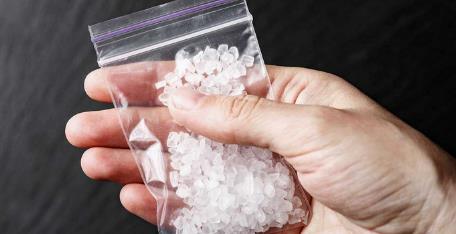San Antonio Drug Possession Defense Lawyers – Protecting Your Rights Against Serious Charges
Understanding the Serious Nature of Drug Possession Charges in Texas
Facing a drug possession charge in Texas is a critical legal matter that can derail your life in an instant. Even a small amount of a controlled substance can lead to severe criminal penalties, including incarceration, massive fines, and a permanent criminal record. At Barton & Associates, our experienced Texas drug crime defense attorneys understand that these charges often arise from personal struggle, momentary lapses in judgment, or simply being in the wrong place at the wrong time. However, Texas law is unforgiving, and prosecutors treat even minor possession cases with significant aggression. A conviction is not a simple slap on the wrist; it is a life-altering event that can destroy employment opportunities, professional licenses, educational prospects, and personal relationships. If you or a loved one has been charged with drug possession, securing an immediate and strategic legal defense is the most important step you can take to protect your future.
What Constitutes Possession of a Controlled Substance Under Texas Law?
In Texas, the offense of Possession of a Controlled Substance is governed by the Texas Health and Safety Code, Chapter 481. The law is complex, with penalties that vary dramatically based on two key factors: the type of drug (its “Penalty Group”) and the amount or weight seized.
“Possession” in Texas means more than just having drugs in your hand or pocket. The state can prove possession if they establish you had care, custody, control, or management over the substance. This can include:
- Actual Possession: The drugs are found on your person (in your pocket, purse, or hand).
- Constructive Possession: The drugs are found in a place you have access to and control over, such as your car, home, or a locker, and there is evidence linking you knowingly to the drugs.
The prosecution must prove you knowingly or intentionally possessed the illegal substance. Lack of knowledge is a common and powerful defense—if you did not know the drugs were present, you cannot be guilty of possession.
How Texas Classifies Drugs and Determines Penalty Severity
Texas categorizes illegal drugs into “Penalty Groups,” with Group 1 containing the most severely punished substances. The penalty escalates based on the aggregate weight of the drugs involved.
Below is the felony penalty structure for Possession of a Controlled Substance in Penalty Group 1 (e.g., cocaine, heroin, methamphetamine, oxycodone, fentanyl):
- Less than 1 gram: State Jail Felony, 180 days to 2 years in a state jail facility + up to $10,000 fine
- 1 gram or more but less than 4 grams: Third-Degree Felony, 2 to 10 years in prison + up to $10,000 fine
- 4 grams or more but less than 200 grams: Second-Degree Felony, 2 to 20 years in prison + up to $10,000 fine
- 200 grams or more but less than 400 grams: First-Degree Felony, 5 to 99 years or life in prison + up to $10,000 fine
- 400 grams or more: Enhanced First-Degree Felony, 10 to 99 years or life in prison + up to $100,000 fine
Other Common Penalty Groups:
- Penalty Group 2: Includes hallucinogens like ecstasy (MDMA) and PCP.
- Penalty Group 2-A: Synthetic cannabinoids (e.g., K2, Spice).
- Penalty Group 3: Includes prescription drugs with a potential for abuse (like Xanax or Valium) not in Group 1 or 2.
- Penalty Group 4: Includes compounds with limited quantities of narcotics.
Marijuana Possession: Possession of 2 ounces or less of marijuana is a Class B Misdemeanor, punishable by up to 180 days in jail and a $2,000 fine. Amounts above 2 ounces quickly escalate to felony charges.
The Devastating Collateral Consequences of a Conviction
While the threat of jail time is frightening, the collateral consequences of a drug conviction can be even more damaging and long-lasting:
- Permanent Criminal Record: A drug conviction will appear on every background check for employment, housing, professional licensing, and student loans for the rest of your life.
- Loss of Federal Benefits: You can become ineligible for federal student aid (FAFSA), housing assistance (Section 8), and food stamps (SNAP).
- Loss of Professional Licenses: Careers in law, medicine, nursing, teaching, real estate, and countless other licensed professions will be closed to you.
- Loss of Driving Privileges: A drug conviction can lead to an automatic driver’s license suspension.
- Difficulty Finding Employment: Most employers conduct criminal background checks and will reject applicants with drug convictions.
- Immigration Consequences: For non-citizens, a drug conviction is often grounds for mandatory deportation and will permanently bar pathways to citizenship.
- Damage to Personal Reputation and Relationships: The social stigma can isolate you from your community and strain personal relationships.
Common Defense Strategies for Drug Possession Charges
At Barton & Associates, we build a defense by attacking the weakest points in the prosecution’s case. Every situation is unique, but successful strategies often include:
- Challenging the Legality of the Search and Seizure: The Fourth Amendment protects you from unreasonable searches. If the police found drugs through an illegal stop, search of your person, vehicle, or home without a warrant or probable cause, we can file a motion to suppress evidence. If granted, the drugs are thrown out and the case is often dismissed.
- Disputing “Possession” and Knowledge: We argue that you did not have care, custody, or control over the drugs. If they were found in a common area, a friend’s car, or a shared apartment, we challenge the state’s ability to prove you knew they were there or had the right to control them.
- Challenging the Chain of Custody and Lab Analysis: The state must prove the substance is an illegal drug. We scrutinize how the evidence was handled from arrest to the crime lab. Breaks in the chain of custody or errors in lab analysis can create reasonable doubt.
- Asserting a Valid Prescription Defense: If you possessed a legally prescribed medication, we gather your medical and pharmacy records to prove you had a lawful right to possess the substance.
- Pursuing Pre-Trial Diversion or Deferred Adjudication: For many first-time offenders, we negotiate for pre-trial diversion or deferred adjudication. These programs allow for dismissal of charges upon successful completion of terms like drug education courses, community service, and probation. This avoids a final conviction on your record.
The Critical Importance of Immediate Legal Action
The decisions you make in the first hours and days after an arrest are pivotal. Protect yourself by following these steps:
- Exercise Your Right to Remain Silent. Do not discuss the incident with police officers or investigators. Anything you say can be used to establish your knowledge and control over the drugs. Politely state, “I wish to remain silent and I want to speak to an attorney.”
- Do Not Consent to Any Searches. You are not obligated to allow a search of your person, vehicle, or belongings without a warrant. Clearly state, “I do not consent to a search.”
- Contact a Defense Attorney Immediately. Early intervention by our firm allows us to begin investigating the scene, interviewing witnesses, and filing motions to preserve evidence and challenge illegal searches before the state’s case solidifies.
- Document Everything. Write down a detailed account of the events leading to your arrest, including the officer’s statements, while your memory is fresh.
Why Choose Barton & Associates for Your Drug Possession Defense
Facing drug charges requires a law firm with specific expertise in Texas drug laws and a track record of challenging prosecutions.
- Former Prosecutorial Insight: Our attorneys who previously served as prosecutors understand exactly how the state builds drug possession cases, from the initial stop to the forensic analysis. We know where to look for weaknesses.
- Aggressive and Strategic Defense: We are not simply plea bargain attorneys. We meticulously investigate and prepare every case for trial, which gives us maximum leverage in negotiations. We fight for dismissals, charge reductions, and alternative resolutions that protect your record.
- Compassionate, Client-Centered Representation: We treat you as an individual, not a case number. We take the time to understand your full story and develop a defense strategy focused on your specific goals and future.
- Deep Knowledge of Local Courts: Our extensive experience in Texas courtrooms means we understand the tendencies of local judges and prosecutors, which can be invaluable in securing a favorable outcome.
Protect Your Future Today: Contact Our Texas Drug Possession Defense Lawyers
A drug possession charge is a serious threat to your liberty and your future. The consequences of a conviction are designed to be punitive and long-lasting. Do not make the mistake of pleading guilty without exploring every legal defense available to you.
Do not speak to authorities. Do not wait for your court date.
Contact Barton & Associates today at 210-500-0000 for a confidential and thorough case evaluation. We will listen to your situation, explain the charges and potential defenses in clear terms, and immediately begin building the powerful defense you need to protect your rights and your future.
Main Category: Criminal Defense
Practice Area Category: Drug Crimes
Barton & Associates, Attorneys at Law
115 Camaron St, San Antonio, TX 78205
Office: 210-500-0000









